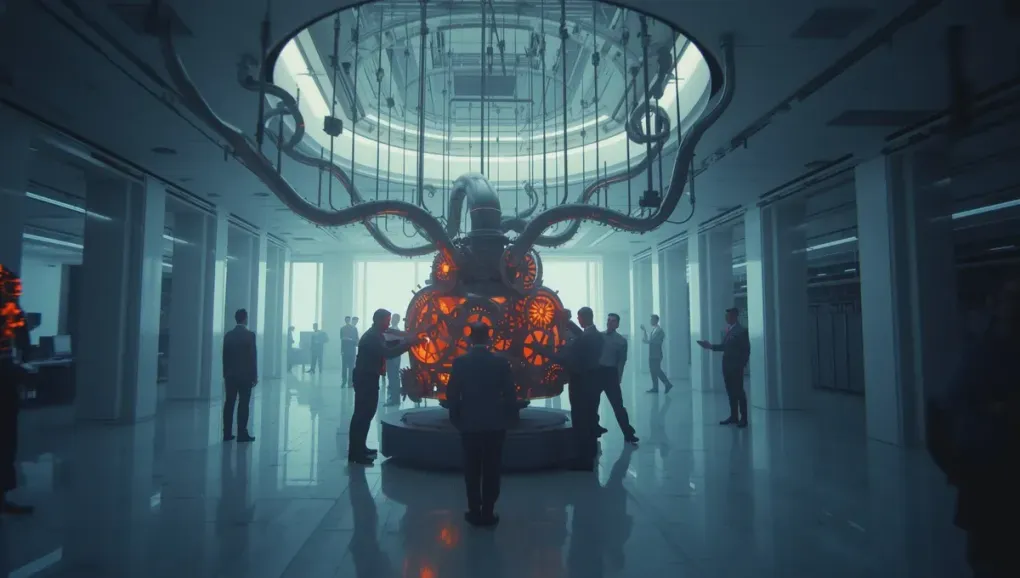
Judy Faulkner's Software Factory: Willy Wonka Genius or Corporate Dystopia?
The press loves a good eccentric billionaire story, and the tale of Judy Faulkner, the 82-year-old CEO of health-care software giant Epic Systems, seems like a ready-made script. The official narrative paints her as a mix of “Bill Gates and Willy Wonka,” a visionary who built a $5.7 billion annual revenue empire from a Wisconsin basement, complete with quirky commandments plastered in bathrooms and an almost religious aversion to venture capital and IPOs.
But behind the facade of Disney-themed campuses and cute dogs in meetings, the Epic story raises a question that Silicon Valley and the corporate world try to ignore: where is the line between an idiosyncratic genius and a benevolent dictator?
The 10 Commandments and “Work Church”
The CNBC feature describes an almost surreal setting. A company that forbids being acquired or going public, where mandatory monthly meetings for 14,000 employees in an underground auditorium are nicknamed “work church.” Where the CEO, worth $7.8 billion, still cares about teaching the difference between “who” and “whom.”
It’s easy to romanticize this as a unique culture, a resistance to the “evil” of the financial market. Faulkner claims the “tyranny of the quarter” and “vitriolic” shareholders turned her off the idea of an IPO. It’s a noble justification, but also an incredibly convenient one. Keeping the company private guarantees her absolute, unquestionable control. There is no board to please, no shareholders to answer to. Only Judy’s will.
The Founder Cult and Employee Reality
Epic recruits talent straight out of college, immerses them in intensive training, and puts them to work on a campus that looks more like an amusement park. The Economist’s analysis, however, paints a less magical picture, ranking Epic with the worst work-life balance in the software industry. The company’s stated average of 45 work hours a week seems like an optimistic underestimate when compared to former employee accounts of burnout.
The genius of Faulkner isn’t just in the software, but in creating a closed, self-contained ecosystem. She has built a world where her rules are the constitution, her vision is the only one that matters, and loyalty is rewarded with a stable job in a fairytale setting. But fairytales can be frightening. The succession structure, with a trust committee that cannot vote to sell the company, ensures her legacy—and her control—will last posthumously.
Genius or Fear of Losing Control?
No one builds a company of this size without a dose of genius and a relentless work ethic. Epic dominates 42% of the electronic health record market in U.S. acute care hospitals, surpassing Oracle. Key customers praise their direct access to Faulkner and her dedication.
However, the refusal to make acquisitions, the aversion to formal budgets (“if you need it, buy it; if you don’t, don’t buy it”), and the micromanagement of details like the decor of 85 bathrooms paint a portrait of a leader who perhaps fears complexity and the loss of control more than anything else. It’s a mindset that has worked brilliantly so far, but is it sustainable?
The story of Judy Faulkner isn’t just about a quirky CEO. It’s about power, control, and the narrative we build around tech titans. Is she Willy Wonka, showing us her magical factory? Or is she a more subtle version of Bill Gates, shaping an industry in her image, with rules that only apply to her? The answer, most likely, lies in an uncomfortable middle ground we’d rather not admit.


